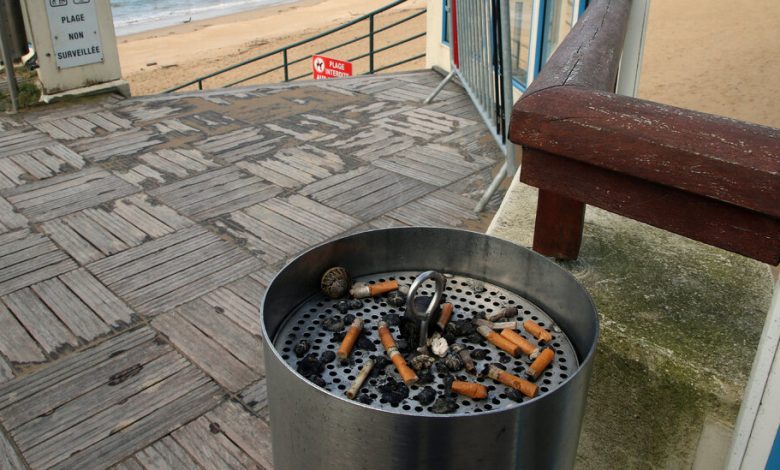France to Ban Smoking in Forests, on Beaches and Near Schools

France will ban smoking on beaches, near public buildings like schools and in public parks and forests next year, the French government said on Tuesday, as it unveiled plans to curb the habit by making it slightly more expensive and far less attractive, especially to younger people.
“We have won battles,” Aurélien Rousseau, France’s health minister, said at a news conference in Paris. Noting that the smoking rate for 17-year-olds had already dropped to 16 percent in 2022 — down from 25 percent in 2017 — he added that “tobacco remains a major public health scourge.”
The government’s plan is part of an ambitious effort to produce the first “no-tobacco generation” by 2032.
While anti-smoking campaigners welcomed some of the measures announced by Mr. Rousseau, they said that lofty objective would be hard to achieve if the government did not act even more forcefully to push up the price of cigarettes.
Smoking rates in France have remained roughly unchanged since 2019 after decades of regularly declining, according to French public health authorities.
Nearly a quarter of French adults, or about 12 million people, still smoke daily, compared with just 11.5 percent of U.S. adults who smoke regularly, according to the Centers for Disease Control and Prevention. And smoking is still the leading cause of avoidable mortality in France, causing about 75,000 deaths per year.
Mr. Rousseau said the government wanted to continue “de-normalizing” smoking in outdoor settings by making smoking-authorized areas the exception, not the rule. (Smoking inside most public establishments like restaurants, cafés and clubs has been strictly forbidden for more than a decade.)
Previously, local authorities had already barred people from smoking at more than 7,000 outdoor locations, including at beaches, forests and parks across the country, Mr. Rousseau said, but there was no nationwide ban.
Violators of the new ban could be fined, but Mr. Rousseau said the details of any penalties still needed to be worked out.
The government also wants to make tobacco increasingly unattractive for young people, mainly by banning disposable, single-use vapes that are heavily marketed toward teenagers, which would fulfill a promise that was first made by Prime Minister Élisabeth Borne in September.
Mr. Rousseau said those vapes — nicknamed “puffs” in France — were “each more colorful and attractive than the last” but were “an aberration from the point of view of public health or of their environmental impact.”
The government also wants to extend the requirement that all tobacco and vaping products have plain packaging, which is already required for cigarette packs.
Crucially, Mr. Rousseau said the government was aiming for a minimum price of 13 euros per pack of cigarettes, or about $14, by 2027. A pack currently costs about $12 on average in France.
Anti-smoking groups welcomed measures like the bans on outside smoking and on disposable vapes but said the planned price increases would not go far enough to significantly reduce smoking rates.
Marion Catellin, the director of the Alliance Against Tobacco, said the government’s target price for 2027 was too low — her organization was hoping for a price of 16 euros per pack — and that the cost of individual packs would likely reach 13 euros anyway through inflation.
Ms. Catellin said that if the government did not show “political courage” by raising taxes on cigarettes, it would struggle to reach the goal of a “no-tobacco” generation by 2032.
“We are very disappointed,” she said. “This plan represents a policy of small steps in the face of very ambitious objectives.”
The government can enact most of the measures announced by Mr. Rousseau by decree and will do so early next year, he said. The ban on disposable vapes will require legislation that is expected to go to Parliament next month. Mr. Rousseau said pharmacists will also be allowed to prescribe nicotine substitution medication to help smokers quit.
Countries around the world have taken conflicting public health approaches to smoking.
In May, Australia announced sweeping new regulations that aimed to reduce smoking and vaping, while neighboring New Zealand announced last week that it wanted to repeal a law — previously celebrated as a model for other nations — that would have gradually banned all cigarette sales in the country over the course of several decades.